How Sleep Deprivation affects Skin Health and what to do with it?
| Estimated Reading Time: 8 minutes |
“I need my beauty sleep!” is a quote all of us hear often when dealing with people who either go to sleep early or maintain a good sleep schedule. Many people don't think about how important sleep is when it comes to skincare. Skin being the largest organ of the body, it's essential to maintain it to appear your best. Skincare isn't only serums, lip balms and creams, it's also good food and 10 hours of sleep. In the times that we live in, work and life balance is a scale that tips in an unbalanced manner and we tend to sleep AFTER 12 am, scroll on our phones or maintain hobbies that we can't cultivate during office hours.
Table of Content: |
How does sleep deprivation affect skin?
Sleep loss will obviously have many effects on the skin, as a great deal of recovery processes are going on in the night. Hereunder is a brief outline of some of the main effects:
-
Increased Inflammation: Inflammation processes become exaggerated in people whose bodies are sleep-deprived, leading to general redness and swelling or flare-ups of certain skin conditions, like acne and eczema.
-
Slowed Skin Repair: Skin cells repair themselves during deep sleep, and, like most regenerative processes, sleep deprivation generally causes delayed healing responses. As a result, any wounds, blemishes, or irritation that someone may have won't heal as quickly following a night of lost sleep.

-
Dull and Uneven Skin: A good complexion relies heavily on sleep. Without enough sleep, skin can appear dull, pale, and lifeless.
-
Dark Circles and Puffiness: The most apparent effect of lack of sleep is dark circles and puffiness under the eyes. With regard to sleep assisting in the movement and drainage of fluids, less sleep will make this fluid accumulation beneath the skin relatively more prominent.
-
Acceleration of aging signs: Chronic sleep deprivation contributes to accelerated aging. These culminate in fine lines, wrinkles, and loss of elasticity throughout the skin. It is during sleep that the skin is most directed to produce collagen, thus assuring it remains firm and elastic across different ages.
-
Dryness: Conclusively, not getting enough sleep can also lead to the inability of the skin to hold in moisture, leading to dryness and additional visible fine lines as a result.
To summarize, sleep is vital for well-being and health within the skin, while lacking sleep can lead to visible signs of age, irritation, and general.
Effects of hormones on sleep
Stress and hormones are major causes of sleeplessness, and sleeplessness generates a vicious cycle that worsens the previous state. Here is how it all works:
1) Stress carries over to sleep deprivation: Higher levels of cortisol produce hyperarousal that strongly suppresses the onset of sleep and deep sleep. (Anxiety and tension can occasionally cause states of hyperarousal, producing natural restlessness.) Sympathetic nervous system activation usually raises heart rates, blood pressure, and alertness, so relaxing and sleeping will not be easy. The mental extras carried on with stress will likely carry intrusive thoughts, worries, or anxieties into the dream state, and the inner agitation usually causes insomnia or broken sleep.

2) Hormones and sleep: Melatonin is a hormone that regulates between sleep and wakefulness. Its secretion could be interfered with by stress and sleep deprivation. Exposure to blue light would also inhibit the production of this sleep-inducing hormone because of the stress factors involved on computers or with phones.
3) Human growth hormone: Most of the production of this hormone would occur at night while sleeping. However, the chronic loss of sleep reduces the release of this specific hormone that helps repair tissue, promotes muscle growth, and promotes general recovery of the human body.
4) Leptin and ghrelin: These two hormones control hunger and appetite. Individuals who do not get enough sleep are very likely to have hormonal imbalances: elevation of ghrelin (hunger hormone) and repression of leptin (satiety hormone). Ill-fatedly, this makes a person more prone to craving junk foods, which tend to increase levels of stress.
How Ayurveda promotes sleep for skincare
In Ayurveda, sleep assumes a completely vital role in promoting healthy living and the general well-being of an individual. Simply put, that sleep is connected to the balance of doshas, which are Vata, Pitta, and Kapha, is recognized by Ayurveda in the context of mental, physical, and spiritual health. Here are some highlights of sleep importance according to Ayurveda: Sleep is believed to restore balance among the doshas present in the body. Each of the doshas has specific qualitative attributes, and any lack thereof, or low-quality sleep, is bound to disturb these doshas, creating some sort of imbalance that may show up as a physical or mental ailment. Sleep is believed to be the time when the rejuvenation of the mind and body begins.

In Ayurveda, it is important to stress that the body's repair and restoration mechanism, particularly for tissues and energy channels, is activated when you sleep. Sleep is crucial for maintaining mental clarity, stability, and functionality since insomnia or disrupted sleep causes worry, tension, and mental imbalances that, according to Ayurveda, may later result in Pitta illnesses like irritability and rage or Vata disorders like anxiety. Aside from this, Ayurveda states that getting enough sleep might help you achieve the following benefits:
1. Enhancement of Agni (digestion): Proper sleep regulates Agni, or the digestive fire, the core of good living. An apparently normal Agni, ensures apt digestion of food, assimilation of nutrients into the body, thus contributing towards strength and vitality.
2. Detoxification: According to everyday ayurveda medicine, sleeping aids in the body's detoxifying process, which occurs during sleep when ama may have accumulated. This keeps the system healthy and in balance.
3. Supports immunity: A sound sleep, according to Ayurvedic knowledge, is predominantly elemental for the body's immune system, which helps protect against diseases and illnesses. Sleep builds Ojas; this being the essential healing capacity in Ayurveda, thus immunity and strength.
4. Connectedness: Sleep for Ayurveda is seen as a connection to deep spiritual powers: when distractions of the mind melt, it brings inner peace and self-awareness. To understand some of these benefits through Ayurveda, sleep in general has to be in a regular routine of sleep in accordance with natural cycles of day and night, termed Dinacharya. The ideal sleep should be mainly going to bed early, avoiding heavy meals before sleep, overcoming stress, and creating a peaceful environment for sleep
How to effectively deal with sleepless skincare
Among the many impacts of limited sleep, perhaps the most common is dehydration. When we haven't slept enough, we can lose moisture in our skin, making it look dry and dull. If we hydrate correctly, we can restore that dewy glow that facilitates the overall look of plump and refreshed skin. Look for skincare products with anti-inflammatory ingredients such as chamomile, aloe vera, green tea extract, or calendula. These ingredients are known for their calming properties and can help to reduce redness, swelling, and irritation.
Aside from this, another typical symptom of sleep deprivation is puffiness around the eyes. To help minimize edema and revitalize the skin, you might use a cold compress or chilled gel eye mask. The Cucumber slices or cold spoons work just as well.
Another miracle ingredient that is known for soothing the skin and, at the same time, addressing issues such as redness and inflammation is Niacinamide.The Niacinamide helps to strengthen the skin barrier, which is important for people with conditions like rosacea or acne, because sleep deprivation can weaken it.
Since, lack of sleep has a direct impact on the appearance of the skin, resulting in puffiness, dryness, dullness, and early aging symptoms. It could be repaired by combining anti-inflammatory skincare, barrier repair, hydration, and amazing nutrients like caffeine, vitamin C, and retinol. The ability of the skin to heal will be greatly enhanced by internal nutrients, healthy eating, consistent exercise, and stress reduction.
However, the best thing you can do for the longevity of your skin and complexion is to develop a good bedtime routine, which can ensure the long-term health and wellness of your skin. By implementing the aforementioned tactical efforts, your skin is bound to be at its optimal best when sleep-deprived. While mitigating damage due to lack of sleep is necessary, there is no debating that in the long run, quality sleeping patterns will keep skin clear and healthy. In fact, quality sleep, after all, is when one's body and skin are literally repairing, regenerating, and rejuvenating.
Conclusion
It is important to recognize that all efforts you put into your skincare aren't a personification of your efforts as a person. You can always fail, maybe stay up a bit too late a few times and eat something to fulfill your craving rather than your nutrition goal. Be kind to yourself and start the cycle again rather than punishing yourself. Skincare is as important as your mental health, so focus on both, and you will probably see a change in your sleeping pattern. Good sleep helps in keeping your mental wellness, and it also helps your physical form of being. So to be your best, glowy self while sleeping, keep these tips in your head.
Recommended Products by Blue Nectar:
Shubhr Niacinamide Under Eye Serum for Dark Circles (17 herbs, 30ml)
Niacinamide Under Eye Cream for Dark Circles with Papaya & Potato Starch | (18 Herbs, 15g)
Kumkumadi Night Repair Face Cream & Papaya & Potato Starch Under Eye Serum Combo(50g + 30ml)
Related Articles:
Why do I feel so sleepy even after waking up?
How Body Massage could help to sleep better?
References:
https://academic.oup.com/ced/article/48/10/1113/7191992
https://walkindermatology.com/how-does-lack-of-sleep-affect-skin/


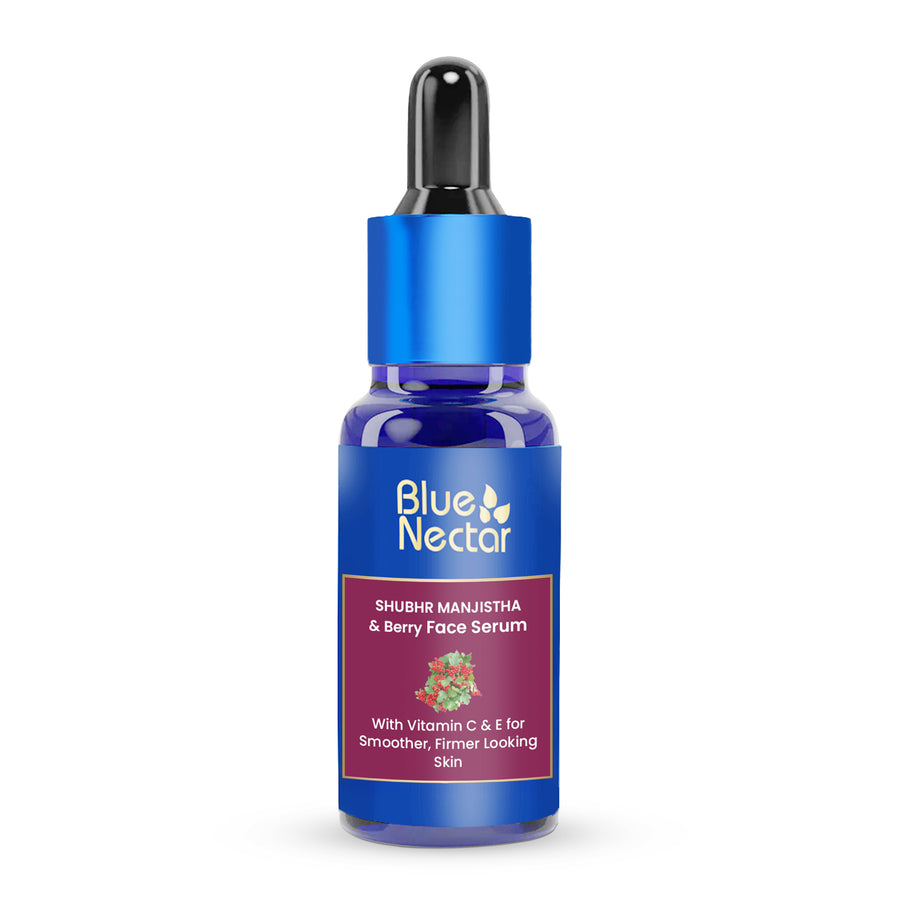
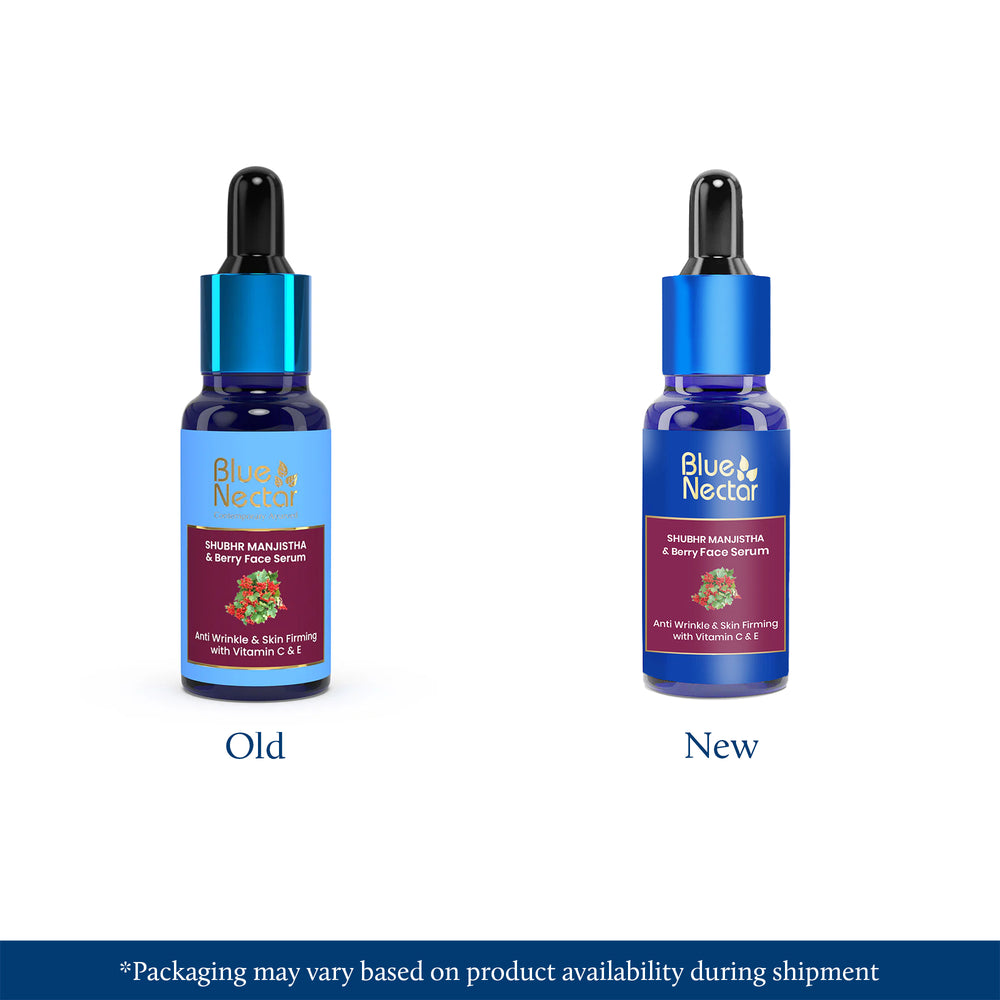
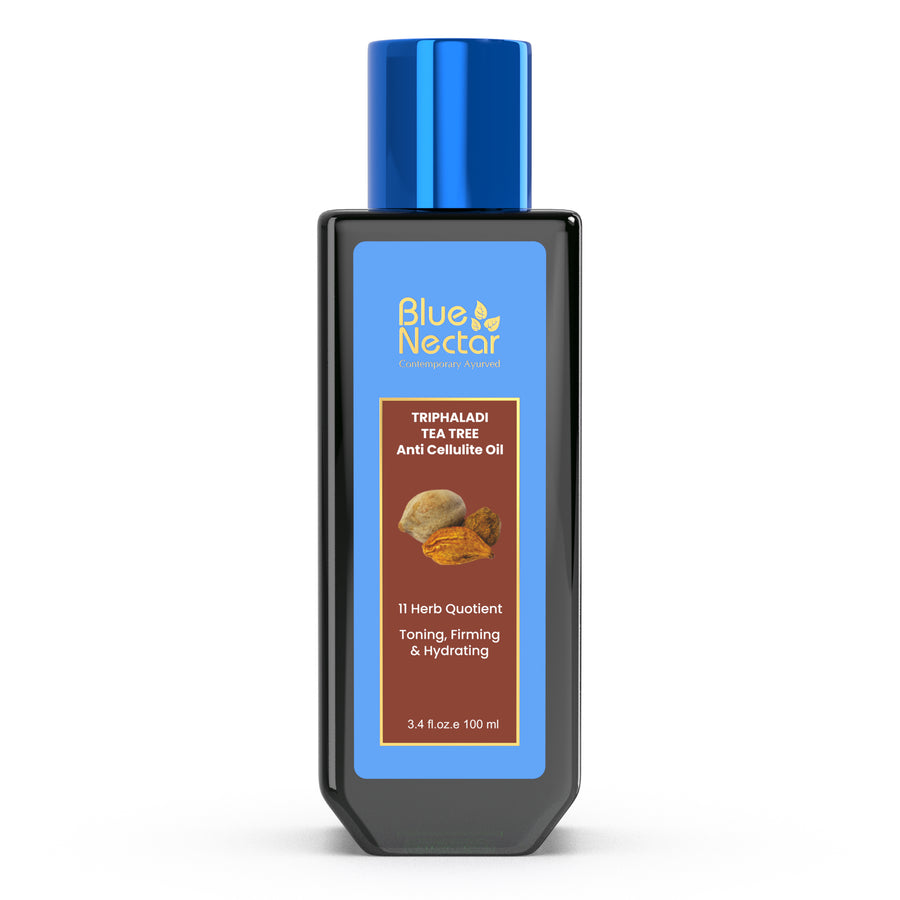
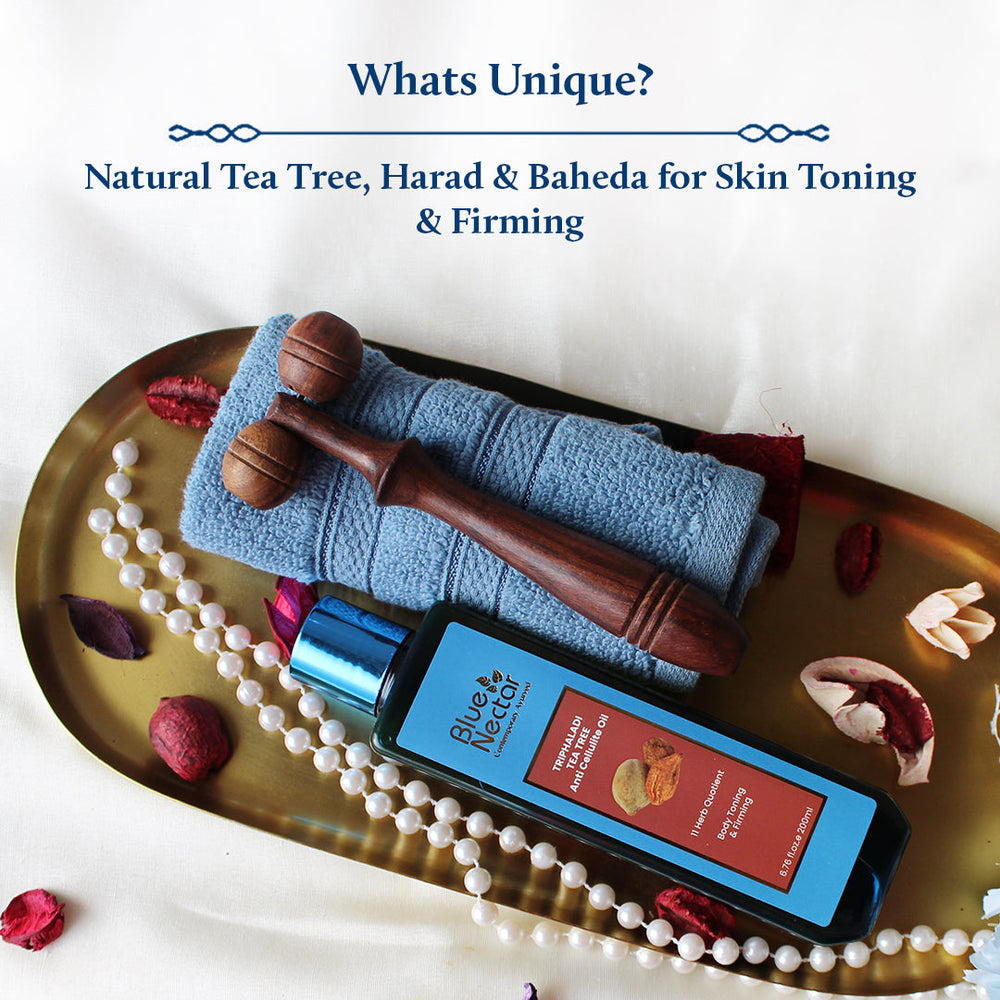




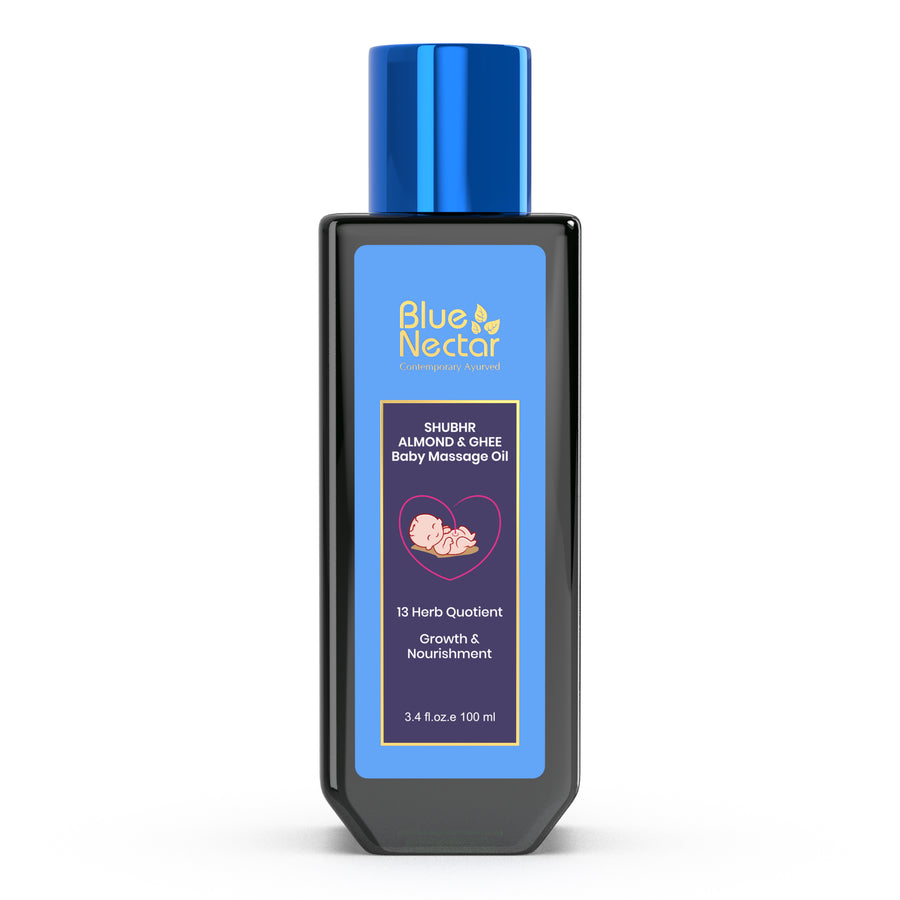
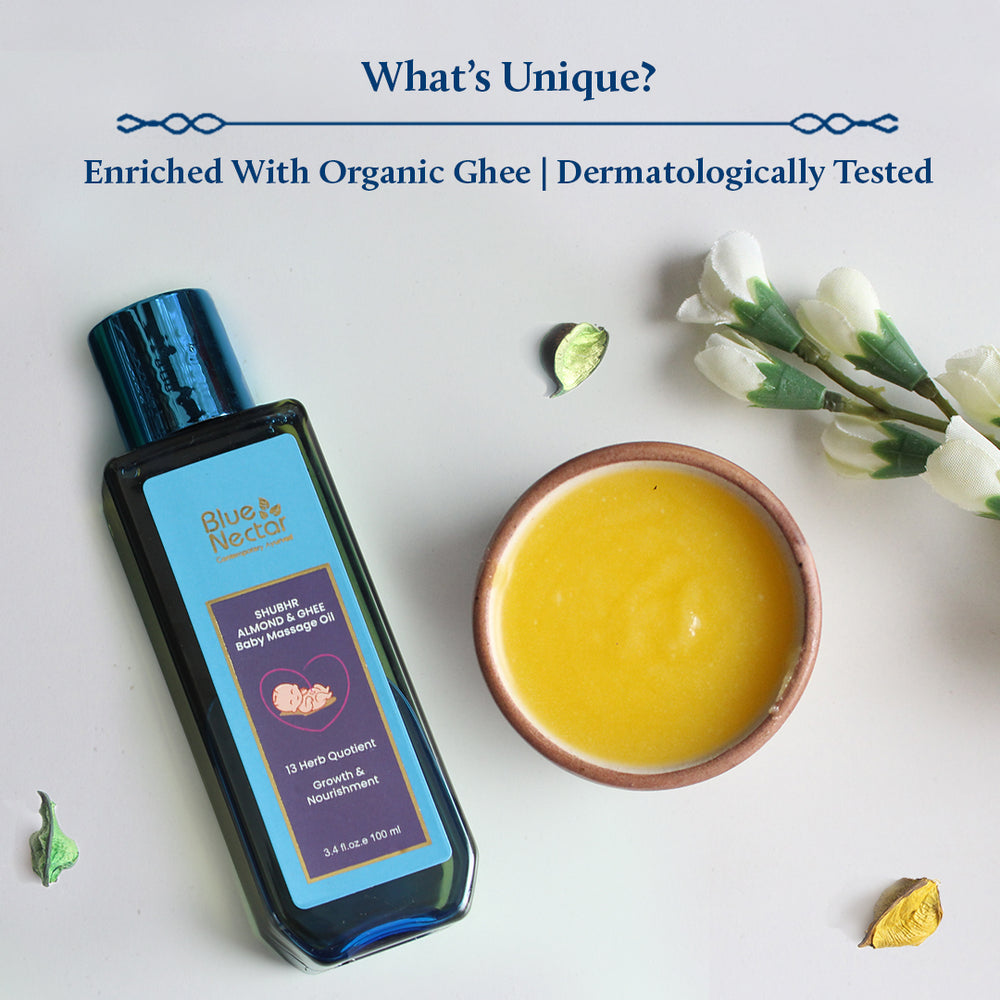

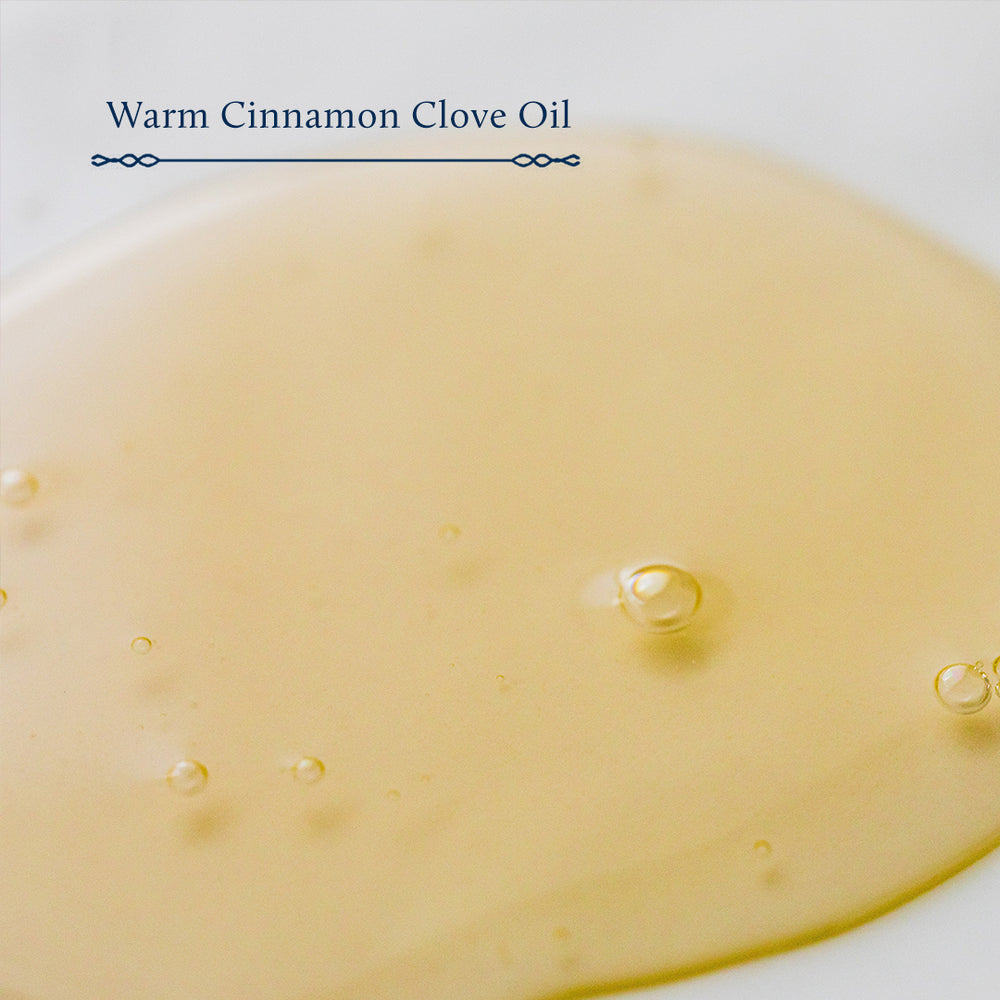



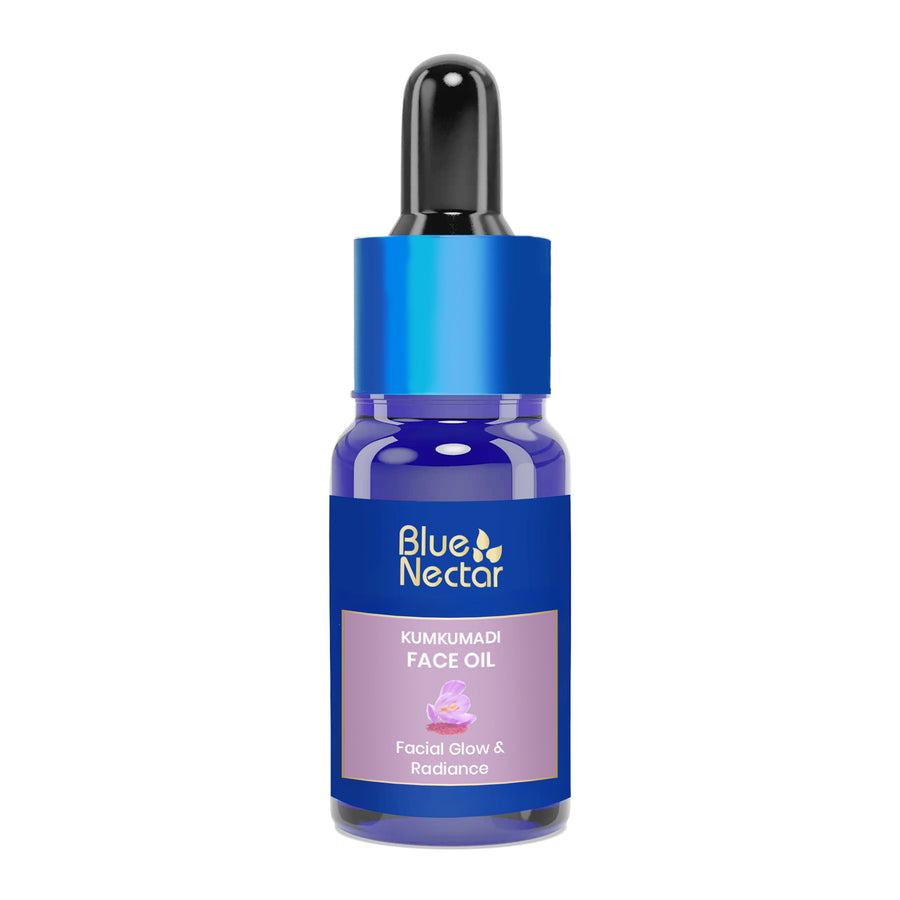
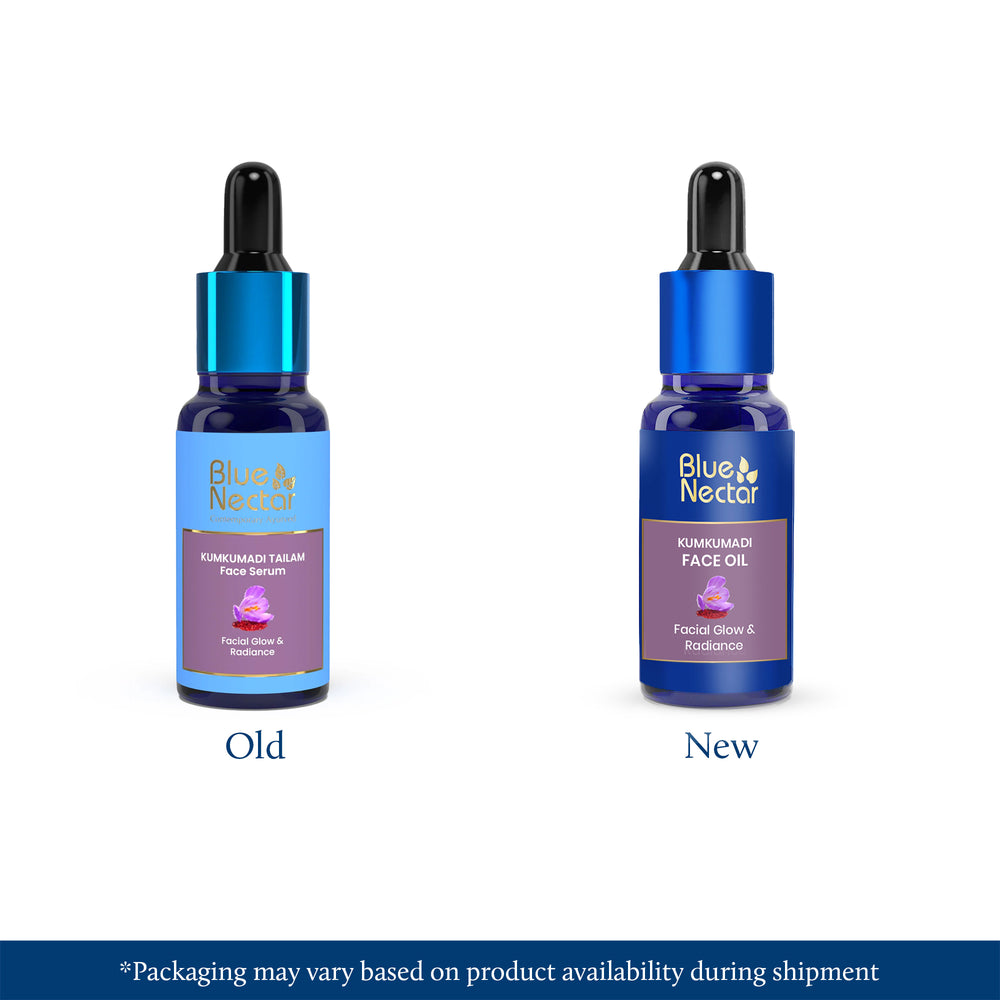
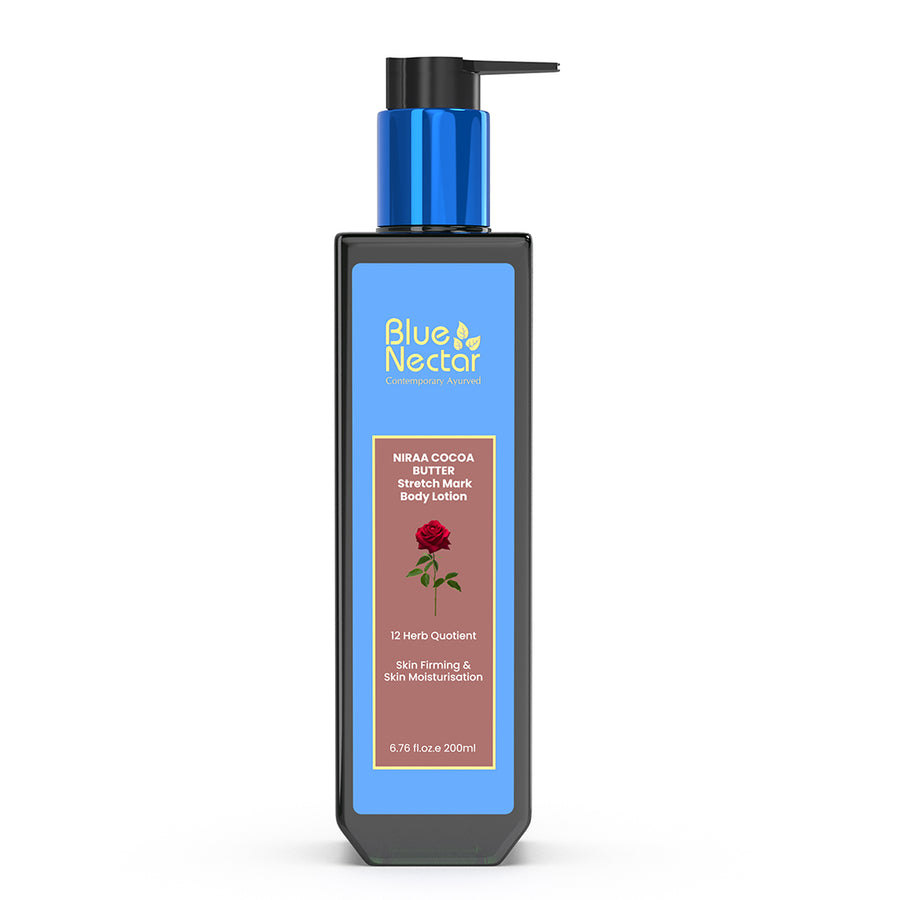



Leave a comment